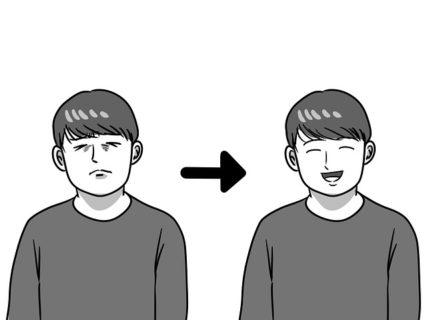School expulsions are terrifying. Why? They are unknown and pretty serious. But, if you pull back the curtain, and take the mystery away, expulsion hearings are easier to confront.
So, what actually happens at student expulsion hearings? Let’s demystify the mysterious, scary, awe-inspiring, school expulsion hearing.

There Will Be Differences in Expulsion Hearings, Depending
Remember, there can be some minor variations in student expulsion hearing processes, depending on the school district involved. All are bound by state laws, they just may look slightly different.
Most school districts use an expulsion panel made up of school district employees. Others, may convene expulsions in front of a single hearing officer. In smaller districts, the full school board may be the determiner.
Another factor that causes variations, as in all things, is how well a school district follows state laws, of course!
Waiting For School Expulsion Hearing to Begin
First is the waiting game. On the day of the expulsion hearing, parents and the student arrive outside a hearing room, check in and wait. Or, they just walk into the hearing room and sit down.
Any witnesses the family brings with them, or meets there, will be asked to wait outside for their turn to speak.
This is the certainly the easy part of the expulsion.
Hearing Officer Reads Basic Student Expulsion Hearing Rules
Once everyone is seated and tension is highest, the hearing officer will begin the hearing, reading off the procedural and other rules. Likely the expulsion hearing officer will indicate the hearing is being recorded (or maybe a court reporter is present).
Any anticipated procedural issues can be brought up at this time, such as issues with anticipated witnesses or an objection to some evidence. However, traditional evidentiary rules do not apply to school expulsion hearings.

Who Goes First?
The school will present their case first as they are the one asking for the student to be expelled.
Opening Statements by School and Parent
The school will then make their opening statement. Sometimes the school vice principal just reads the school summary, previously provided to the parents.
Other times, it is a new summary that the Principal or Vice Principal makes, where they lay out the alleged facts and their request for expulsion.
The parent usually gets to make an opening statement now as well. Occasionally, the parent’s opening statement may come later, after the school’s case, and before the parent presents the student’s expulsion defense.
School Makes Their Expulsion Case
The school then presents their case.
If the parents don’t have the school’s expulsion hearing documents by now, they need to ask for them. Anything the school is presenting should be shared with the student’s family.
The school will likely refer to their packet and read some of that into the expulsion hearing record.
The school may call witnesses. Witnesses will likely include an administrator, who goes over the “investigation” and sometimes a student or teacher.
If the school calls the accused student, the family can refuse, and/or can reserve the student’s testimony for their defense. Remember, the student cannot be compelled to testify in an expulsion hearing.

Questions from the Expulsion Panel or Parent
During testimony and/or after the presentation by the school, the expulsion panel and parent may ask questions at appropriate times.
Student’s Family Presents Expulsion Hearing Defense
The student’s family goes next. If they did not do an opening statement earlier, they can do it now. Otherwise, parents can refer to any documents they previously submitted and call their witnesses, if any.
A parent will likely testify as a character witness. It is up to the parent whether the student will testify or not. This is the time for parents to present other witnesses as well, to show the incident did not happen, was less than what is alleged, or any required secondary findings (danger/other means of correction), if applicable, can’t be made.
More Questions from the Student Expulsion Hearing Panel
At appropriate times during the parent’s witnesses testimony, or after they student’s expulsion defense is complete, the school or expulsion hearing panel may ask questions. If the student testifies, there are likely to be clarifying questions from the hearing panel.
Maybe There Will Be Closing Expulsion Arguments
Usually there is a closing argument allowed for both sides, with the school going first. Sometimes a hearing officer tries to just jump to deliberations and parents can politely stop them and ask to present.
I always ask to do a closing argument so I can try one more time to persuade the school expulsion panel that the student is innocent or deserves mercy and remind the panel of our position.
This is also a good time to attack the holes in the school’s case, or point out areas where a charge was not proven by the school. Parents can ask that no student expulsion proceed or that a lesser punishment be imposed on the student and make a final plea.
Summary of Post-Expulsion Hearing Steps

The expulsion hearing officer should now explain what will happen next, how long the decision may take to issue, and any remaining procedural steps.
The family can ask any final questions. The student’s expulsion hearing is then closed.
Dismissed While School Expulsion Panel Deliberates
Both parties and any administrative staff should all leave the room. Usually the expulsion panel will remain in the hearing room to start their deliberations.
If a parent does a good job, hopefully the student’s expulsion will not proceed or an alternative punishment will be imposed.
Board Review
The matter will then proceed to the school board, unless the board was the one to oversee the hearing. A letter should issue confirming the outcome after a final ruling in at the school board is made.
Michelle Ball has helped students as an education attorney since 1995. As a student-focused lawyer, located in the capitol of California, Sacramento, she can reach across California to assist. She helps in Roseville, Rocklin, Fresno, Los Angeles, Napa, and many more California locations.
Suggested reading: Is School Expulsion Really That Bad?

